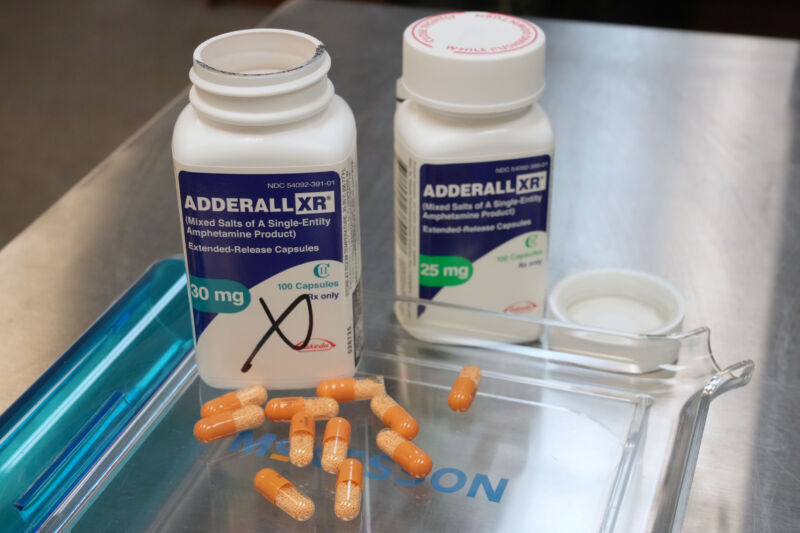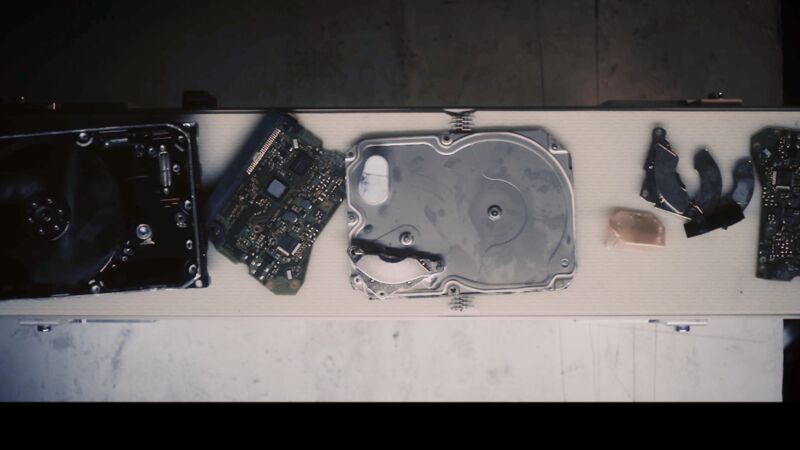U bent hier
Van dingen die voorbijkomen
Beavis and Butt-Head on SNL
If you need six minutes of comic relief, this might do the trick. For those who don’t get the underlying reference, watch here. Enjoy! :)
Sleeping more flushes junk out of the brain

Enlarge (credit: OsakaWayne Studios)
As if we didn’t have enough reasons to get at least eight hours of sleep, there is now one more. Neurons are still active during sleep. We may not realize it, but the brain takes advantage of this recharging period to get rid of junk that was accumulating during waking hours.
Sleep is something like a soft reboot. We knew that slow brainwaves had something to do with restful sleep; researchers at the Washington University School of Medicine in St. Louis have now found out why. When we are awake, our neurons require energy to fuel complex tasks such as problem-solving and committing things to memory. The problem is that debris gets left behind after they consume these nutrients. As we sleep, neurons use these rhythmic waves to help move cerebrospinal fluid through brain tissue, carrying out metabolic waste in the process.
In other words, neurons need to take out the trash so it doesn’t accumulate and potentially contribute to neurodegenerative diseases. “Neurons serve as master organizers for brain clearance,” the WUSTL research team said in a study recently published in Nature.
Why do some people always get lost?

Enlarge / Scientists are homing in on how navigation skills develop. (credit: Knowable Magazine (CC BY-ND))
Like many of the researchers who study how people find their way from place to place, David Uttal is a poor navigator. “When I was 13 years old, I got lost on a Boy Scout hike, and I was lost for two and a half days,” recalls the Northwestern University cognitive scientist. And he’s still bad at finding his way around.
The world is full of people like Uttal—and their opposites, the folks who always seem to know exactly where they are and how to get where they want to go. Scientists sometimes measure navigational ability by asking someone to point toward an out-of-sight location—or, more challenging, to imagine they are someplace else and point in the direction of a third location—and it’s immediately obvious that some people are better at it than others.
“People are never perfect, but they can be as accurate as single-digit degrees off, which is incredibly accurate,” says Nora Newcombe, a cognitive psychologist at Temple University who coauthored a look at how navigational ability develops in the 2022 Annual Review of Developmental Psychology. But others, when asked to indicate the target’s direction, seem to point at random. “They have literally no idea where it is.”
Great moments in obscure rock 'n' roll: Universe, "Spanish Feeling," 1971
Change Healthcare faces another ransomware threat—and it looks credible

Enlarge (credit: iStock / Getty Images Plus)
For months, Change Healthcare has faced an immensely messy ransomware debacle that has left hundreds of pharmacies and medical practices across the United States unable to process claims. Now, thanks to an apparent dispute within the ransomware criminal ecosystem, it may have just become far messier still.
In March, the ransomware group AlphV, which had claimed credit for encrypting Change Healthcare’s network and threatened to leak reams of the company’s sensitive health care data, received a $22 million payment—evidence, publicly captured on bitcoin’s blockchain, that Change Healthcare had very likely caved to its tormentors’ ransom demand, though the company has yet to confirm that it paid. But in a new definition of a worst-case ransomware, a different ransomware group claims to be holding Change Healthcare’s stolen data and is demanding a payment of their own.
How new tech is making geothermal energy a more versatile power source

Enlarge / The Nesjavellir Geothermal Power Station. Geothermal power has long been popular in volcanic countries like Iceland, where hot water bubbles from the ground. (credit: Gretar Ívarsson/Wikimedia Commons)
Glistening in the dry expanses of the Nevada desert is an unusual kind of power plant that harnesses energy not from the sun or wind, but from the Earth itself.
Known as Project Red, it pumps water thousands of feet into the ground, down where rocks are hot enough to roast a turkey. Around the clock, the plant sucks the heated water back up to power generators. Since last November, this carbon-free, Earth-borne power has been flowing onto a local grid in Nevada.
Geothermal energy, though it’s continuously radiating from Earth’s super-hot core, has long been a relatively niche source of electricity, largely limited to volcanic regions like Iceland where hot springs bubble from the ground. But geothermal enthusiasts have dreamed of sourcing Earth power in places without such specific geological conditions—like Project Red’s Nevada site, developed by energy startup Fervo Energy.
US drug shortages reach record high with 323 meds now in short supply

Enlarge / Takeda Pharmaceutical Co. Adderall XR brand medication arranged at a pharmacy in Provo, Utah, in November 2023. (credit: Getty | George Frey)
Drug shortages in the US have reached an all-time high, with 323 active and ongoing shortages already tallied this year, according to data collected by the American Society of Health-System Pharmacists (ASHP).
The current drug shortage total surpasses the previous record of 320, set in 2014, and is the highest recorded since ASHP began tracking shortages in 2001.
"All drug classes are vulnerable to shortages," ASHP CEO Paul Abramowitz said in a statement Thursday. "Some of the most worrying shortages involve generic sterile injectable medications, including cancer chemotherapy drugs and emergency medications stored in hospital crash carts and procedural areas. Ongoing national shortages of therapies for attention-deficit/hyperactivity disorder [ADHD] also remain a serious challenge for clinicians and patients."
SD cards finally expected to hit 4TB in 2025

Enlarge / Generic, non-Western Digital SD cards. (credit: Getty)
Western Digital plans to release the first 4TB SD card next year. On Thursday, the storage firm announced plans to demo the product in person next week.
Western Digital will launch the SD card, which follows the SD Association's Secure Digital Ultra Capacity (SDUC) standard, under its SanDisk brand and market it toward "complex media and entertainment workflows," such as high-resolution video with high framerates, using cameras and laptops, the announcement said.
The spacious card will use the Ultra High Speed-1 (UHS-1) bus interface, supporting max theoretical transfer rates of up to 104MB per second. It will support minimum write speeds of 10 MB/s, AnandTech reported. Minimum sequential write speeds are expected to reach 30 MB/s, the publication said.
“Highly capable” hackers root corporate networks by exploiting firewall 0-day

Enlarge (credit: Getty Images)
Highly capable hackers are rooting multiple corporate networks by exploiting a maximum-severity zero-day vulnerability in a firewall product from Palo Alto Networks, researchers said Friday.
The vulnerability, which has been under active exploitation for at least two weeks now, allows the hackers with no authentication to execute malicious code with root privileges, the highest possible level of system access, researchers said. The extent of the compromise, along with the ease of exploitation, has earned the CVE-2024-3400 vulnerability the maximum severity rating of 10.0. The ongoing attacks are the latest in a rash of attacks aimed at firewalls, VPNs, and file-transfer appliances, which are popular targets because of their wealth of vulnerabilities and direct pipeline into the most sensitive parts of a network.
“Highly capable” UTA0218 likely to be joined by othersThe zero-day is present in PAN-OS 10.2, PAN-OS 11.0, and/or PAN-OS 11.1 firewalls when they are configured to use both the GlobalProtect gateway and device telemetry. Palo Alto Networks has yet to patch the vulnerability but is urging affected customers to follow the workaround and mitigation guidance provided here. The advice includes enabling Threat ID 95187 for those with subscriptions to the company’s Threat Prevention service and ensuring vulnerability protection has been applied to their GlobalProtect interface. When that’s not possible, customers should temporarily disable telemetry until a patch is available.
Words are flowing out like endless rain: Recapping a busy week of LLM news

Enlarge / An image of a boy amazed by flying letters. (credit: Getty Images)
Some weeks in AI news are eerily quiet, but during others, getting a grip on the week's events feels like trying to hold back the tide. This week has seen three notable large language model (LLM) releases: Google Gemini Pro 1.5 hit general availability with a free tier, OpenAI shipped a new version of GPT-4 Turbo, and Mistral released a new openly licensed LLM, Mixtral 8x22B. All three of those launches happened within 24 hours starting on Tuesday.
With the help of software engineer and independent AI researcher Simon Willison (who also wrote about this week's hectic LLM launches on his own blog), we'll briefly cover each of the three major events in roughly chronological order, then dig into some additional AI happenings this week.
Gemini Pro 1.5 general release
(credit: Google)
On Tuesday morning Pacific time, Google announced that its Gemini 1.5 Pro model (which we first covered in February) is now available in 180+ countries, excluding Europe, via the Gemini API in a public preview. This is Google's most powerful public LLM so far, and it's available in a free tier that permits up to 50 requests a day.
Texas surgeon accused of secretly blocking patients from getting transplants

An accomplished and prominent transplant surgeon in Texas allegedly falsified patient data in a government transplant waiting list, which may have prevented his own patients from receiving lifesaving liver transplants, according to media reports and hospital statements.
Memorial Hermann-Texas Medical Center halted its liver transplant program on April 3 after finding "irregularities" with donor acceptance criteria, the Houston Chronicle reported based on a statement from the hospital. At the time there were 38 patients on the hospital's wait list for a liver. Earlier this week, the hospital also halted its kidney transplant program, telling the Chronicle that it was pausing operations to "evaluate a new physician leadership structure."
Memorial Hermann has not named the surgeon behind the "inappropriate changes," but The New York Times identified him as Dr. Steve Bynon, a surgeon who has received numerous accolades and, at one point, appears to have been featured on a billboard. Bynon oversaw both the liver and kidney transplant programs at Memorial Hermann.
Google mocks Epic’s proposed reforms to end Android app market monopoly

Enlarge (credit: SOPA Images / Contributor | LightRocket)
Epic Games has filed a proposed injunction that would stop Google from restricting third-party app distribution outside Google Play Store on Android devices after proving that Google had an illegal monopoly in markets for Android app distribution.
Epic is suggesting that competition on the Android mobile platform would be opened up if the court orders Google to allow third-party app stores to be distributed for six years in the Google Play Store and blocks Google from entering any agreements with device makers that would stop them from pre-loading third-party app stores. This would benefit both mobile developers and users, Epic argued in a wide-sweeping proposal that would greatly limit Google's control over the Android app ecosystem.
US District Court Judge James Donato will ultimately decide the terms of the injunction. Google has until May 3 to respond to Epic's filing.
The DiskMantler violently shakes hard drives for better rare-earth recovery

Enlarge / From magnets we came, to magnets we return. (credit: Garner Products)
There is the mental image that most people have of electronics recycling, and then there is the reality, which is shredding.
Less than 20 percent of e-waste even makes it to recycling. That which does is, if not acquired through IT asset disposition (ITAD) or spotted by a worker who sees some value, heads into the shredder for raw metals extraction. If you've ever toured an electronics recycling facility, you can see for yourself how much of your stuff eventually gets chewed into little bits, whether due to design, to unprofitable reuse markets, or sheer volume concerns.
Traditional hard drives have some valuable things inside them—case, cover, circuit boards, drive assemblies, actuators, and rare-earth magnets—but only if they avoid the gnashing teeth. That's where the DiskMantler comes in. Garner Products, a data elimination firm, has a machine that it claims can process 500 hard drives (the HDD kind) per day in a way that leaves a drive separated into those useful components. And the DiskMantler does this by shaking the thing to death (video).
SpaceX’s most-flown reusable rocket will go for its 20th launch tonight

Enlarge / File photo of a Falcon 9 rocket rolling out of its hangar at Cape Canaveral Space Force Station, Florida. (credit: SpaceX)
For the first time, SpaceX will launch one of its reusable Falcon 9 boosters for a 20th time Friday night on a flight to deliver 23 more Starlink Internet satellites to orbit.
This milestone mission is scheduled to lift off at 9:22 pm EDT Friday (01:22 UTC Saturday) from Space Launch Complex 40 (SLC-40) at Cape Canaveral Space Force Station, Florida. Forecasters from the US Space Force predict "excellent" weather for the primetime launch.
Falcon 9 will blaze a familiar trail into space, following the same profile as dozens of past Starlink missions.








































































































![Reference manager - [Onderhoud aantekeningen]](https://labyrinth.rienkjonker.nl/sites/default/files/styles/medium/public/Reference%20manager%20v3%20-%20%5BOnderhoud%20aantekeningen%5D%2014-2-2010%20102617_0.jpg?itok=OJkkWhxY)
![Reference manager - [Onderhoud aantekeningen]](https://labyrinth.rienkjonker.nl/sites/default/files/styles/medium/public/Reference%20manager%20v3%20-%20%5BOnderhoud%20aantekeningen%5D%2014-2-2010%20102628.jpg?itok=CUvhRRr7)
![Reference manager - [Onderhoud bronnen] - Opnemen en onderhouden](https://labyrinth.rienkjonker.nl/sites/default/files/styles/medium/public/Reference%20manager%20v3%20-%20%5BOnderhoud%20bronnen%5D%2014-2-2010%20102418.jpg?itok=d7rnOhhK)
![Reference manager - [Onderhoud bronnen]](https://labyrinth.rienkjonker.nl/sites/default/files/styles/medium/public/Reference%20manager%20v3%20-%20%5BOnderhoud%20bronnen%5D%2014-2-2010%20102433.jpg?itok=CgS8R6cS)
![Reference manager - [Onderhoud bronnen]](https://labyrinth.rienkjonker.nl/sites/default/files/styles/medium/public/Reference%20manager%20v3%20-%20%5BOnderhoud%20bronnen%5D%2014-2-2010%20102445_0.jpg?itok=4oJ07yFZ)
![Reference manager - [Onderhoud bronnen]](https://labyrinth.rienkjonker.nl/sites/default/files/styles/medium/public/Reference%20manager%20v3%20-%20%5BOnderhoud%20bronnen%5D%2014-2-2010%20102500.jpg?itok=ExHJRjAO)
![Reference manager - [Onderhoud bronnen]](https://labyrinth.rienkjonker.nl/sites/default/files/styles/medium/public/Reference%20manager%20v3%20-%20%5BOnderhoud%20bronnen%5D%2014-2-2010%20102524.jpg?itok=IeHaYl_M)
![Reference manager - [Onderhoud bronnen]](https://labyrinth.rienkjonker.nl/sites/default/files/styles/medium/public/Reference%20manager%20v3%20-%20%5BOnderhoud%20bronnen%5D%2014-2-2010%20102534.jpg?itok=cdKP4u3I)
![Reference manager - [Onderhoud thema's en rubrieken]](https://labyrinth.rienkjonker.nl/sites/default/files/styles/medium/public/Reference%20manager%20v3%20-%20%5BOnderhoud%20themas%20en%20rubrieken%5D%2020-9-2009%20185626.jpg?itok=zM5uJ2Sf)













![Reference manager - [Raadplegen aantekeningen]](https://labyrinth.rienkjonker.nl/sites/default/files/styles/medium/public/Reference%20manager%20v3%20-%20%5BRaadplegen%20aantekeningen%5D%2020-9-2009%20185612.jpg?itok=RnX2qguF)
![Reference manager - [Relatie termen (thesaurus)]](https://labyrinth.rienkjonker.nl/sites/default/files/styles/medium/public/Reference%20manager%20v3%20-%20%5BRelatie%20termen%20%28thesaurus%29%5D%2014-2-2010%20102751.jpg?itok=SmxubGMD)
![Reference manager - [Thesaurus raadplegen]](https://labyrinth.rienkjonker.nl/sites/default/files/styles/medium/public/Reference%20manager%20v3%20-%20%5BThesaurus%20raadplegen%5D%2014-2-2010%20102732.jpg?itok=FWvNcckL)
![Reference manager - [Zoek thema en rubrieken]](https://labyrinth.rienkjonker.nl/sites/default/files/styles/medium/public/Reference%20manager%20v3%20-%20%5BZoek%20thema%20en%20rubrieken%5D%2020-9-2009%20185546.jpg?itok=6sUOZbvL)
![Reference manager - [Onderhoud rubrieken]](https://labyrinth.rienkjonker.nl/sites/default/files/styles/medium/public/Reference%20manager%20v3%2020-9-2009%20185634.jpg?itok=oZ8RFfVI)

![Reference manager - [Onderhoud aantekeningen]](https://labyrinth.rienkjonker.nl/sites/default/files/styles/medium/public/Reference%20manager%20v3%20-%20%5BOnderhoud%20aantekeningen%5D%2014-2-2010%20102603.jpg?itok=XMMJmuWz)


































































